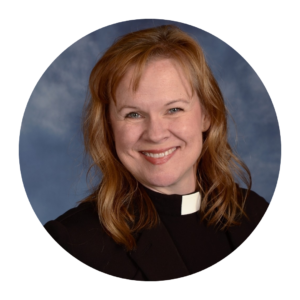Warning: I am going to brag about my children. They are 18 and 23 years old and I think they are incredible people. This is not because they got the best grades in school (they didn’t), they always did their chores on time and with no reminding (girlfriend, please…), or they have their life plans all figured out (heck, I don’t have my life plans all figured out). The reason I am bursting with pride for my kids is that they are really neat people, people I would choose as friends. They are authentically themselves, as well as kind, compassionate, funny, and generous.

Transformative COURSES & WORKSHOPS that make integrating peaceful living, health and wellness easy, fun and affordable.
One of my favorite things about them is that they are spiritually centered and wise. Maybe their dad and I did a couple of things right in raising them – in addition to our mistakes! We definitely learned a thing or two along the way about raising kids to be spiritually whole, secure, and healthy, and tried to implement those values. Here are my best tips if you are wondering how to raise spiritually healthy children.:
GIVE THEM A ROCK TO STAND ON
I was not raised in any religious community, and I grew up floundering a bit. I longed for a spiritually-minded group of people, an extended family of sorts, who shared similar values and who could help me understand my search for meaning. Like many children, I was told that “someday, I can choose my own path.” This was far better than being raised in some kind of shaming, toxic religious environment, but certainly not as good as a loving, helpful spiritual community. My mother did, however, share with me her spiritual messages that we are all connected, that we come from love and will return to love, that the point of life is to learn and grow, that service to others matters, and that we don’t need to live in fear. In that way, she did give me a firm foundation of some core spiritual principles, and for that I am deeply grateful.
As parents, we don’t want to seem dogmatic and pushy, so we often tell our children they can choose their own spiritual paths, but then we deprive them of the gifts of healthy spiritual community or teachings. We don’t tell our children, “When you’re older, you can choose whether you want to learn math/visit Grandma/brush your teeth.” Instead we say, “This is what our family does. I think it’s a good idea.” Some day, of course, maybe our grown children will choose to stop using math/seeing Grandma/ brushing their teeth. That is their choice. It is also their choice to switch religious communities or spiritual paths. But there is no need to keep them from healthy spiritual community as they grow up. Of course, we must look for communities that protect, honor, and serve children, as well as adults. We never want to place them in someplace unsafe or emotionally unhealthy.
EXPOSE THEM TO OTHERS
While I was growing up, I was taken to dozens of cultural and ethnic festivals. I learned the joys of music and dance from Russia and Samoa, art from Tibet and France, theater from Japan and England, and the Los Angeles offerings of food from around the world. I raised my children in the same way, while extending these outings beyond art and culture to religion. My husband and I valued taking our children to synagogues, mosques, temples, and shrines. They grew up comfortable among tours inside places of holy ritual. They knew it was okay for people to ask questions and engage in dialogue. They also knew it was very important to listen and learn. I am grateful that they learned to respect Muslim women praying in hijabs, Hindu men bowing before statues of Krishna, and the female rabbi who offered a beautiful Sabbath service in our local synagogue.
We live in the religiously pluralistic United States. Children might as well be exposed to their neighbors. They do well to learn that we are in some ways very similar. We all want to love and be loved, exist in safety and peace, and provide a place of well-being for our children. Most of us reach to a “higher” or “deeper” power, regardless of the name. We also have some differences, as the children will notice. That is okay. People are beautifully diverse and, like the colors of the rainbow, or the many species of flowers, we can coexist without needing to be in competition. Children can easily accept their own identity while also celebrating the identities of others.
EXPOSE THEM TO NATURE
I was not raised around much that is natural. Suburbs of Los Angeles boast much more concrete and shopping malls than anything God-designed. However, on occasion, I was driven up to local mountains, down to California beaches, or out to the desert. In these places, I saw and felt how big the world was. I saw the natural beauty and felt in awe of my place in the landscape. When my children were little, they called my mother Grandma-at-the-Beach, because she was happiest near any ocean and took them there, as she did with me.
Nature puts everything in perspective. It envelops us as we worry about our petty problems, chew on our past regrets, and wonder about our self-worth. Nature tells us that we are staring at stars and a moon older than our concept of time, we are encircled by miracles we can barely comprehend, our worries and regrets are not that big of a deal, and everything will be okay. Nature is an instant meditation for adults, and it is a gift we can pass on to our children. It is always a good idea to expose them to the beautiful world and help them find their place in it. This instilled habit of looking to nature will do wonders for them as they grow, much more so than buying them the latest technological gadget or taking them on one more shopping trip at the mall.
EXPOSE THEM NOT TO ANSWERS, BUT TO VIRTUES
All parents know that little children have the most profound questions. I stumped my parents, you stumped yours, my kids stumped me, and your kids stumped you. That’s the way of things. It is okay to not have all the answers and admit it. Our growing children respect us for saying “I don’t know,” “I’m trying to figure this out, too,” and “I’m sorry, I made a mistake.” We all want human parents, not perfect ones.
While you can give them some answers, or at least opinions or wisdom gained from experience, sometimes we don’t have answers to give. “Why do bad things happen to good people?” is a particularly tough question, as is “Why did Grandpa have to die?” and “Why does God sometimes seem distant?” We cannot offer all answers, but we can offer accompaniment. We can promise our children that we will walk beside them and love them through whatever life brings our way.
In this way, we expose our children to the spiritual virtues of compassion and love. This is so much better for a growing person than having all the answers. They will develop into adults who offer others empathy, kindness, and support. We can expose them to other spiritual virtues like honesty, integrity, service to others, forgiveness, mercy, and grace. We do this when we take our children with us to serve food at the local soup kitchen, when we march for justice for oppressed people, and when they overhear that we have chosen to lay down a grudge and forgive our enemies. They absorb all we say and do, including when we make big and small errors and ask for forgiveness ourselves. Virtues stick and character is shaped, not from perfect answers, but from an open heart and a willing spirit.
Ultimately, we will turn our children not to us as parents, but to this “higher” and/or “deeper” power, One who will be there for, with, and in them when we are no longer on the planet physically. Having learned to rely on invisible things of the spirit, they will be equipped to face stressors from the outside, as well as their own, internal challenges. They will be imperfect like all of us, but people of centeredness, truthfulness, and peace. May your small children grow to make you proud, as they are uniquely beloved and beautiful souls. May you know that you are planting seeds not only for them, but for generations to come. May you feel supported in your good, not perfect, work of the spirit and soul.

STEPHANIE LAPE
Stephanie Lape is a pastor in the Evangelical Lutheran Church in America (ELCA).
She holds a Master of Arts degree in Transpersonal Psychology (the psychology of religious experience) from the Institute of Transpersonal Psychology, and a Master of Divinity degree from Luther Seminary. A long-time professor of comparative religions and former campus minister, she now serves as pastor at Eden Lutheran Church in Riverside, California.
Stephanie speaks and teaches on matters of spiritual and psychological development, biblical studies, the enneagram personality tool, and comparative religions. She is an active advocate for interfaith and ecumenical studies. She has taught classes on major religious movements in churches, schools, and city programs, while also leading tours and guest speaking at mosques, synagogues, and temples. Stephanie is honored to be a speaker at the 2021 and 2023 Parliament of the World’s Religions.
She also loves to write. Stephanie is a contributing author for Living Lutheran Magazine and author of Beckoned: Hearing God’s Call to Deeper Faith, which is both a travelogue of her own winding spiritual journey, as well as a guide to help people discover their own path. She lives with her husband and two children in Southern California.




2 Responses
Beautiful job articulating all this. The world is a brighter place because of you, your training and education, and your love for mankind.
Thank you so much for your kind and supportive comments! ❤️